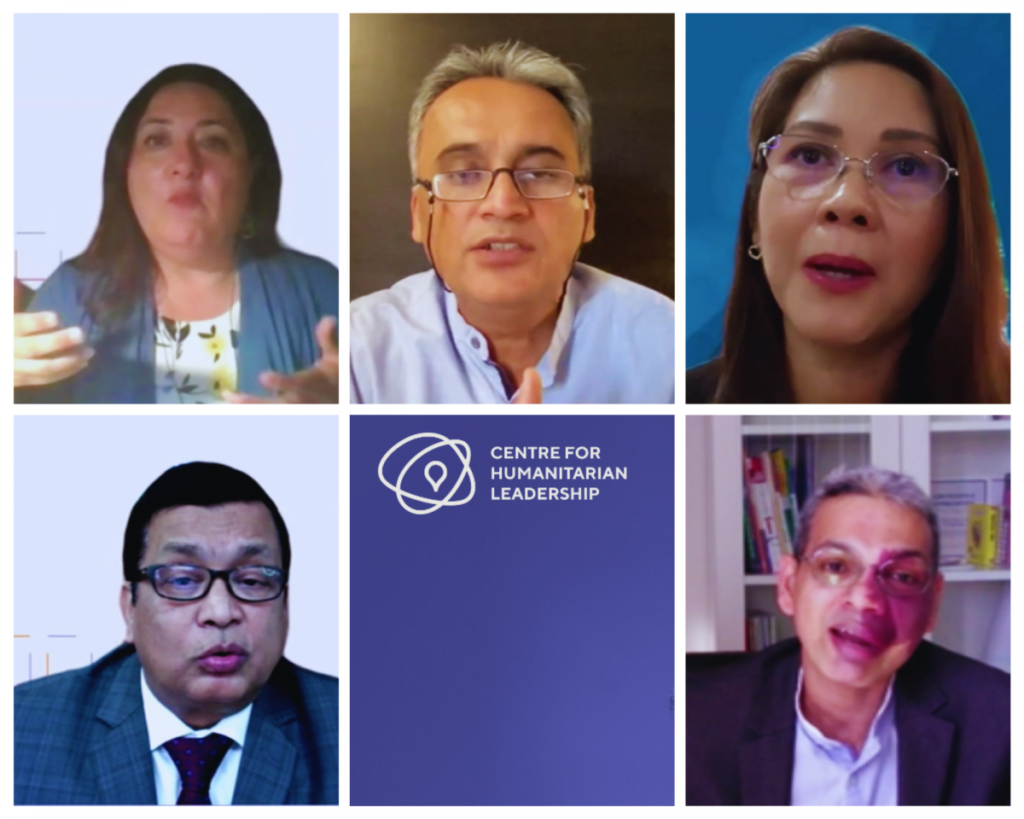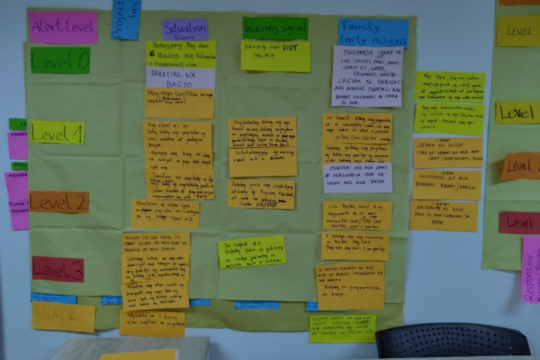The Asian Preparedness Partnership (APP) organized the breakout session on ‘Promoting Localization through Multi-Stakeholder Partnerships’ at the 2021 Humanitarian Leadership Conference on 29 April 2021. The conference was organized by the Center for Humanitarian Leadership (CHL) of the Deakin University, Australia, with support from the IKEA Foundation. The APP served as the knowledge partner of the conference this year.
The discussion focused on innovative multi-stakeholder partnerships in the Asian region in promoting locally-led action to prepare for, respond to, and recover from disasters. It also highlighted how an enabling environment for ‘localization’ supports and aligns with the key global frameworks as well as to the transformation of the humanitarian ecosystem.
In light of the pandemic, the session also touched upon the imperative role that these multi-stakeholder partnerships play in supporting COVID-19 preparedness and response efforts. The panelist provided local, national, regional, and global perspectives on current and innovative practices that contribute to and support the global frameworks. Mr. Edwin Salonga (Program Manager in the Philippines, Asian Disaster Preparedness Center (ADPC) served as the session moderator.
Ms. Pilar Pacheco (Senior Program Officer, Emergency Response – Global Development Division, Bill & Melinda Gates Foundation) initiated the discussion with an overview of the need to invest in local actors. She pointed out that 2020 was a year of change on many fronts, emphasizing the role of local actors in national ecosystems – “We learned of how important it is to support local actors if we want stronger communities. Investing in these actors creates ownership from the start and builds community engagement. Last but not least, interacting with local stakeholders is the most effective way to achieve sustainability.”
The second panelist, Mr. Irfan Mufti (Member, Central Executive Committee, National Humanitarian Network; and Deputy Director, South Asia Partnership – Pakistan) detailed the need to strengthen the local capacities of grassroots organizations and how multistakeholder capacities have supported humanitarian action and COVID-19 response for sustainable solutions in Pakistan. He noted that the country’s humanitarian situation presents the need for a local architecture that ensures an effective and timely response, “Our approach is to create an institutionalized joint action and collaboration. We require specialists to bring their skills, knowledge, and capacities to act together where local actors take the lead role in implementing priority action.”

Mr. Mufti was followed by Ms. Veronica Gabaldon (Executive Director, Philippine Disaster Resilience Foundation (PDRF), Philippines), who elaborated on the lead role that the private sector has taken in local humanitarian action, coordinating with all other stakeholders, and assisting in the COVID-19 response. She cited how the PDRF Cluster System works as a strong multi-sectoral collaboration platform with all stakeholders working together in building disaster resilience – “We organize our member companies according to their core competencies and we build an ecosystem towards disaster resilience which no single organization can build on its own. The system allows for singular system operability between the private sector, the government, and agencies such as the United Nations (UN).”
The fourth panelist was Mr. Md. Mohsin (Secretary, Ministry of Disaster Management and Relief, Government of Bangladesh; and Chairman of the Board of Trustees, ADPC) detailed how the Standing Order on Disaster (SOD) 2019 and other national policies have promoted multi-stakeholder approaches for locally-led actions in Bangladesh. He reflected on how the country’s history of preparing for cyclones has led to establishing policies on disaster risk management (DRM), “The SOD is the most integral of the DRM acts in the country as it considers international frameworks and national perspectives. The order promotes a ‘whole of society approach’ to engage ministries, development partners, the private sector, and non-governmental organizations as well as a network of 74,000 volunteers.”
Mr. Sisira Madurapperuma (Director, Preparedness for Response and Recovery Department, ADPC) concluded the presentation by the panel of experts with his insight on the role of regional organizations in promoting localization through regional cooperation and global outreach. He stressed the importance of strengthening the capacities of local actors for them to take the lead role in humanitarian action. He drew on the issue of supporting local actors and the necessity to look for new avenues in contributing to this ecosystem as a regional organization, “We looked to provide a positive contribution to changing this dynamic from the last five years. We focused on bringing together like-minded partners and countries to bring about the transformation of the humanitarian ecosystem. The lead role has to be taken by local governments, NGO networks, and the private sector.”
The session concluded with an open forum, wherein the moderator posed questions to the panelists. Ms. Pilar Pacheco and Mr. Irfan Mufti shed light on the gaps, barriers, and challenges faced by localization efforts and how they can be addressed. Ms. Veronica Gabaldon, Mr. Md. Mohsin, and Mr. Sisira Madurapperuma shared their experience on ensuring that local actors ‘leave no one behind’ in local humanitarian efforts and in their work with local communities.
Watch the full panel discussion by clicking the link below:


